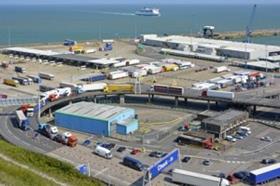The RHA has warned that leaving the European single market and the European Union Customs Union “will inevitably add a degree of administrative cost” to UK operators and could slow down the supply chain.
The association also called on government to grant “significantly greater resources” to HM Revenue & Customs in order to avoid a logistics log-jam.
Richard Burnett, chief executive at the RHA, said: “We need to maintain fluidity through the ports for the trucks that provide a vital trade service.
“Should the UK exit the single market and the customs union, it is clear that HM Customs will need to have significantly greater resources than at present,” he added.” We to have the ability to clear customs without delay, 24/7. The Customs resource, as it stands, quite simply would not be able to cope.”
He was responding to a speech by prime minister Theresa May – in which she said the government would pursue “a bold and ambitious Free Trade Agreement with the European Union” as part of Brexit talks.

The prime minister added that such an agreement would: “Give British companies the maximum freedom to trade with and operate within European markets – and let European businesses do the same in Britain.
“That agreement may take in elements of current single market arrangements in certain areas – on the export of cars and lorries for example,” May went on to say, “or the freedom to provide financial services across national borders – as it makes no sense to start again from scratch when Britain and the remaining member states have adhered to the same rules for so many years.”
The RHA said that the government needed to establish a working group in order to scale up customs resources in time for Brexit, which would include representatives from “the international freight industry” to give the sector confidence in leaving the single market.
“It is essential for supply chains in manufacturing, food distribution and retail that HMRC has sufficient resources to cope from day one with the increased volume,” Burnett said.
He also called for clarification on the industry's ability to bring in workers from abroad, particularly concerning the estimated 60,000 foreign lorry drivers the RHA believes are currently working in the UK.
Meanwhile the FTA said it welcomed May’s commitment to “tariff-free and frictionless trade” with the European Union and to ambitious free trade agreements with other partners globally. In a statement the association also said that her statement allowed the FTA to “identify where the new ‘friction points’ in international trade could occur” and “work with the government to negotiate the best possible outcome for UK businesses”.













